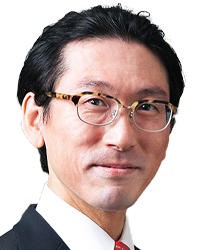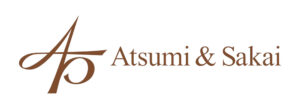Japan is home to the world’s third-largest pharmaceutical market. This presents a significant opportunity for new international entrants. With a surge in the market share of generic drugs, the landscape is ripe for expansion. The local companies that deal with generic drugs are relatively small and lack competitive strength, creating a favourable environment for foreign firms to establish a foothold. Japan is currently facing a shortage of generic drug supplies, further highlighting the need for new players to address this gap and meet the growing demand.
Marketing approval transfers
 Dio Inoue
Dio Inoue
Partner
Tokyo
Atsumi & Sakai
In Japan’s highly regulated pharmaceutical market, the transfer of marketing approval for medicines is a critical process that ensures continuity in the availability of essential drugs. This transfer is vital for maintaining the integrity and safety of the pharmaceutical supply chain, especially during mergers, acquisitions or changes in manufacturing entities.
By adhering to stringent guidelines, companies can ensure that all regulatory requirements are met, safeguarding public health and trust in the healthcare system. Efficient management of marketing approval transfers not only aids seamless transitions but also supports ongoing innovation and development within Japan’s dynamic pharmaceutical sector.
Regarding marketing approval, pharmaceutical law states that the successor can take over the business in both corporate reorganisations and business transfers. In a corporate reorganisation, succession happens automatically. In a business transfer, succession is completed by handing over documents and other material as required by ministerial ordinance.
Despite the shift to electronic documents, current practice requires that written documents be handed over physically. Notification to the regulatory authority is required before the succession. In practice, it must be submitted at least one month in advance.
Japanese pharmaceutical law does not permit the transfer of a pending change application for marketing approval. Therefore, the transferee should determine whether it should succeed the marketing approval following the authority’s approval for a change application, or whether to apply for a change after succeeding with the marketing approval.
Additional considerations
 Yuka Daimon
Yuka Daimon
Associate
Tokyo
Atsumi & Sakai
In addition, companies should be mindful of how they handle employees who are subject to the business transfer. Japan’s labour law protections can pose a significant burden for companies.
Where employees are subject to succession, the employment contract for each employee must be renegotiated separately. The successor company must also explain the business transfer to the labour union and establish working conditions, including salaries, that are not unduly detrimental to the employees compared to their current conditions.
If the employees are not subject to succession, the business transfer agreement usually includes a non-transfer or non-solicitation clause. Even in such cases, voluntary resignation or job changes are not precluded. The successor should ensure the quality and quantity of the workforce by maintaining close dialogue with the employees involved in the transferred business so as not to impede the business plan after the transfer.
Recent amendments to the trade secret law have strengthened the legal system in favour of holders of trade secrets, including its extraterritorial application. In anticipation of employee retirements, the successor should focus on preventing the outflow of trade secrets and know-how by thoroughly establishing and implementing appropriate internal systems.
Certain business transfers will also trigger a filing requirement under the Japanese foreign exchange regulations and/or competition laws. Finally, the transfer of personal data related to the business being succeeded can pose unexpected challenges for successors due to the complexity of data transfer regulations under Japanese data protection laws.
Conclusion
Navigating the complexities of transferring marketing approval for medicines and drugs in Japan requires meticulous planning, deep regulatory knowledge and strategic collaboration. As companies strive to maintain compliance with the stringent standards set by the authorities, they must also ensure seamless transitions to avoid disruptions in the supply chain.
By understanding the regulatory landscape and leveraging transitional services agreements, businesses can manage these challenges and deliver high-quality healthcare solutions in the Japanese market.
While the International Council for Harmonisation has facilitated the harmonisation of major regulatory frameworks for pharmaceutical manufacturing and distribution, various market-specific regulatory and legal environments still exist. When entering the Japanese pharmaceutical market, companies need to consult experts who are knowledgeable and well-versed in local regulations.
Dio Inoue is a partner and Yuka Daimon is an associate at Atsumi & Sakai in Toky
 Atsumi & Sakai
Atsumi & Sakai
Fukoku Seimei Bldg.
2-2-2 Uchisaiwaicho
Chiyoda-ku, Tokyo 100-0011 Japan
www.aplawjapan.com
Contact details:
T: +81-(0)3-5501-2111
E: sho.tsuzuki@aplaw.jp


AloJapan.com